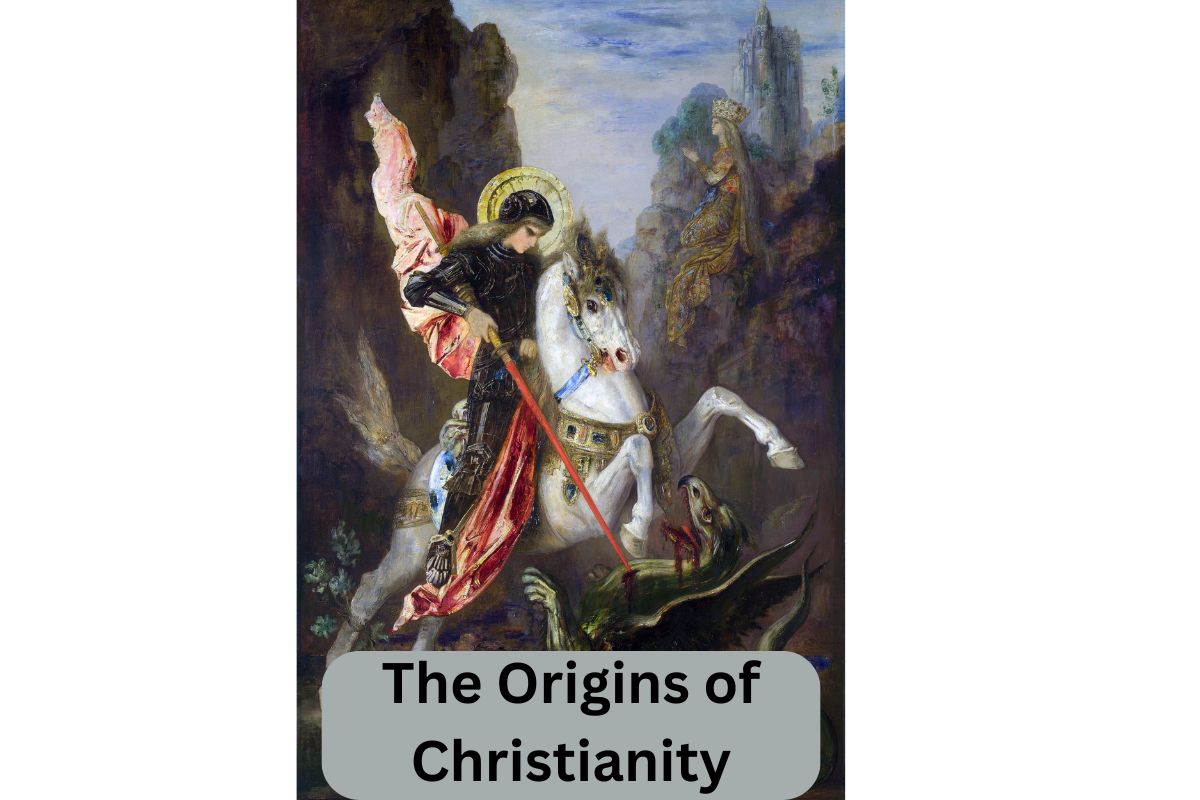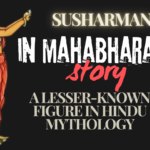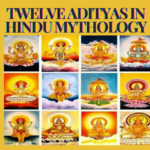Christian mythology, like all religious traditions, has undergone significant transformations since its inception. Early Christianity was vastly different from the Christianity that is widely recognized today. It did not emerge fully formed but evolved over centuries, integrating various cultural, philosophical, and religious elements from pagan traditions. This synthesis of beliefs, customs, and rituals shaped what we now know as Christian theology. In this article, we will explore the origins of Christianity, its evolution, and the profound influence of paganism on its development.
The Origins of Christianity
Christianity began as a small Jewish sect in the 1st century CE. The followers of Jesus of Nazareth believed that he was the promised Messiah who had come to fulfill the prophecies of the Hebrew Bible. Early Christians adhered to Jewish law and customs, but they also began to develop their own distinct beliefs, particularly regarding the divinity of Jesus and the concept of salvation through faith in him.

However, the early Christian communities were not monolithic. There were various interpretations of Jesus’ teachings, leading to the emergence of different sects and schools of thought. Some of these early Christians, known as Gnostics, believed in a more mystical and esoteric interpretation of Jesus’ message. Others, like the Ebionites, maintained a closer connection to Judaism and rejected the idea of Jesus’ divinity.
As Christianity spread beyond its Jewish roots and began to attract Gentile (non-Jewish) converts, it started to absorb elements from the surrounding pagan cultures. This process of syncretism was crucial in shaping the development of Christian doctrine and practice.
What are the mythical characters of Christianity?
Numerous legendary creatures are attested in Christian mythology. These include the Behemoth, Leviathan, Angels, Demons, Nephilim, Re’em, Ziz and dragons.
Pagan Influences on Christian Mythology
One of the most significant aspects of early Christian syncretism was the incorporation of pagan myths, symbols, and rituals into Christian worship. This was not a deliberate attempt to paganize Christianity but rather a natural result of the religion’s expansion into the Greco-Roman world.
The Influence of Mystery Religions
One of the most notable influences on early Christianity came from the mystery religions of the ancient Mediterranean. These religions, such as the cults of Mithras, Isis, and Dionysus, shared several similarities with early Christian beliefs and practices.
For example, the Mithraic cult celebrated the birth of the god Mithras on December 25th, a date that was later adopted by Christians as the birthdate of Jesus. The initiation rites of the mystery religions, which often involved baptism, communion, and the promise of eternal life, also bear striking resemblances to Christian rituals.
The Adoption of Pagan Festivals
Many Christian holidays and festivals have their roots in pagan celebrations. For instance, the Christian festival of Easter, which commemorates the resurrection of Jesus, coincides with the spring equinox and incorporates elements from pagan fertility rites, such as the symbols of the egg and the hare. Similarly, the celebration of Christmas was timed to coincide with the Roman festival of Saturnalia and the winter solstice.
These pagan festivals were often Christianized by repurposing their themes and symbols to fit the Christian narrative. By doing so, early Christians were able to attract converts from pagan backgrounds while maintaining a sense of continuity with their former traditions.
The Influence of Pagan Philosophy
Pagan philosophy, particularly Platonism and Stoicism, also played a crucial role in shaping Christian theology. Early Christian thinkers, such as Justin Martyr and Augustine of Hippo, were heavily influenced by Platonic ideas, particularly the concept of the Logos (the divine Word) and the belief in the immortality of the soul.
The incorporation of these philosophical concepts helped to provide a more intellectual framework for Christian theology and made it more appealing to the educated classes of the Roman Empire. It also allowed Christianity to present itself as a universal religion, capable of reconciling different philosophical traditions.
The Development of Christian Doctrine
As Christianity continued to spread and evolve, it began to develop a more formalized theology. This process was marked by theological debates, councils, and the formulation of creeds.
The Role of the Church Fathers
The early Church Fathers, such as Irenaeus, Tertullian, and Origen, played a crucial role in shaping Christian doctrine. They sought to define orthodox belief and combat what they saw as heretical teachings. In doing so, they often drew on both Jewish and pagan sources to support their arguments.
For example, Irenaeus‘s doctrine of recapitulation (the idea that Jesus’ life and death reversed the effects of Adam’s sin) can be seen as a synthesis of biblical and Platonic ideas. Similarly, Origen’s concept of the pre-existence of souls reflects the influence of Platonic thought.
The Formation of the Canon
Another important aspect of early Christian development was the formation of the New Testament canon. This process was not completed until the 4th century CE, and it involved significant debate over which texts should be included in the Christian scriptures.
The inclusion of certain texts, such as the Gospel of John and the Book of Revelation, reflects the influence of both Jewish apocalypticism and pagan mystical traditions. These texts, with their symbolic imagery and cosmic themes, helped to shape the Christian understanding of the end times and the nature of salvation.
The Council of Nicaea and the Nicene Creed
One of the most important milestones in the development of Christian doctrine was the Council of Nicaea in 325 CE. This council, convened by the Emperor Constantine, sought to resolve the Arian controversy and establish a unified Christian theology.
The result was the Nicene Creed, a statement of faith that affirmed the divinity of Jesus and the concept of the Trinity (Father, Son, and Holy Spirit). The formulation of the Trinity was heavily influenced by Platonic philosophy, particularly the idea of the threefold nature of reality.
The Legacy of Christian Mythology
Christian mythology, with its blend of Jewish, pagan, and philosophical elements, has had a profound impact on the development of Western culture. Its stories, symbols, and rituals have shaped the art, literature, and moral values of countless generations.
However, it is important to recognize that Christianity did not emerge in a vacuum. It was deeply influenced by the religious and cultural milieu of the ancient world, and its mythology reflects a complex interplay of borrowed traditions and original innovations.
Disclaimer : While Writing this post have taken some content reference from different blog posts around the web and also chatgpt. If you think I have directly copy paste your content ,please contact me . I assure you that I will remove the content within 24 hours.





